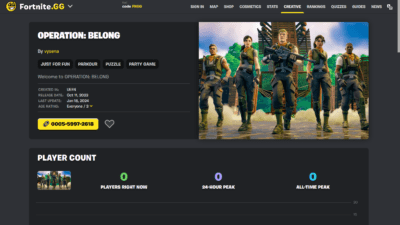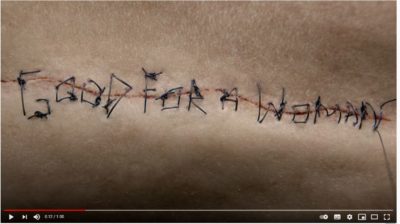MPs criticise Ministry of Defence for continuing to send children to war
The MoD is criticised for lowering standards since WW1 and despite thousands of planned redundancies, it still recruiting children at twice the cost of adults.
- Ministry of Defence criticised for lowering standards since WW1
- Despite thousands of planned redundancies, MoD still recruiting children at twice the cost of adults
MPs are expected to criticise the Ministry of Defence for sending underage soldiers to war in a special debate in the House of Commons today (Thursday 10 November).
On Monday 7 November, the Ministry of Defence rejected fresh calls to review its policy on deploying underage soldiers, despite recently admitting that it had sent four soldiers aged below 18 to Iraq and Afghanistan between 2008 and 2010.[i]
Fabian Hamilton MP (Labour) said, “On the eve of Remembrance Day, it is remarkable and tragic that the Ministry of Defence insists on recruiting and deploying teenagers who would have been ruled out as too young to join the British forces even in the most desperate hours of the First World War. It is unacceptable that standards are lower now than they were a century ago”.
Throughout the First World War the official minimum age for enlistment or conscription was 18 years, and 19 was the minimum age to be sent to the frontline.
The UK now recruits the youngest soldiers in Europe, with a minimum recruitment age of just 16 years. Despite a general policy not to send soldiers into war until they are 18, the Ministry of Defence has always reserved the power to deploy younger recruits in certain circumstances. The United Nations has called for this policy to be reviewed.[ii] When challenged by MPs on Monday, the Under Secretary of State for Defence Personnel Andrew Robathan insisted that he “saw no need” to prohibit the use of underage British soldiers.[iii] International law prohibits the deliberate use of soldiers aged below 18 in hostilities.[iv]
Despite plans to make 11,000 armed forces personnel redundant in order to save money, the Ministry of Defence recruited another 2,760 minors last year.[v] In response to questioning from MPs, the Ministry of Defence recently admitted that minors are almost twice as expensive to train as adult recruits.[vi] This new revelation indicates that annual wasted expenditure on the large number of minors who drop out of training is even higher than the £46 million previously estimated.[vii]
The Ministry of Defence is under growing pressure from Parliament concerning its policy on minors (under-18s). Former Navy Minister Lord Judd (Labour) was among those expressing concerns about high suicide rates and the poor educational provision for minors in the armed forces during recent House of Lords debate on the Armed Forces Covenant.[viii] The recruitment of minors was raised repeatedly during parliamentary debate on the Armed Forces Bill over the summer and in the past few weeks the Ministry of Defence has been challenged by MPs on a range of related issues from underage deployment to the lack of age limits on training with live ammunition.
Children’s rights groups including Child Soldiers International, UNICEF UK, the Children’s Society, the Children’s Rights Alliance for England, and Children in Scotland are campaigning for the Ministry of Defence to raise the armed forces’ recruitment age to 18, in line with standard international practice.
“The Ministry of Defence justifies recruiting minors by claiming they won’t be deployed until they reach 18. In reality that’s not always true but even if it was, at a time of redundancies and frontline manning shortages, you have to question the logic of deliberately recruiting large numbers of children who are too young to go to war”, said Martin Macpherson, interim Director of Child Soldiers International.
“As long as the Ministry of Defence continues to target minors for recruitment, they will continue to be at risk of unlawful deployment”, he concluded.
Notes for editors
- The Ministry of Defence has spent over £9 million on recruitment advertising since May 2010, despite plans to make 11,000 existing armed forces personnel redundant. (Hansard: HC Deb, 12 October 2011, c380W).
- Minors constituted 29.8 per cent of new army recruits in the financial year 2010 – 2011. None of them can be deployed until they reach the age of 18. Women constituted just 8 per cent of new army recruits in the year to April 2011. (www.dasa.mod.uk).
- 37.9 per cent of soldiers leaving the army in 2010/2011 had enlisted under the age of 18. (Hansard: HC Deb, 7 November 2011, c79W).
- 27 per cent of recruits aged under 18 dropped out of armed forces training in 2010/2011 (Hansard: HC Deb, 7 February 2011, c26W).
- 3.6 per cent of infantry soldiers are under the age of 18 and therefore cannot be deployed (Hansard: HC Deb, 19 January 2011, c824W).
- No other country in the European Union and no other permanent member of the UN Security Council recruits 16-year-olds.
- Following the deaths of four young recruits at Deepcut Barracks between 1995 and 2002, Parliament’s Defence Committee report “Duty of Care” (2005) called on the Ministry of Defence to review the recruitment age and consider raising it to 18. No review ever took place.
- Fabian Hamilton is Labour MP for Leeds North East. He is one of 47 MPs to have signed an Early Day Motion (http://www.edms.org.uk/2010-11/781.htm) calling for the minimum armed forces recruitment age to be raised to 18 years.
- Child Soldiers International was formerly known as the Coalition to Stop the Use of Child Soldiers. It is an international human rights research and advocacy organization that works to end the recruitment and military use of children in any capacity by state armed forces and non-state armed groups worldwide.
[i] Response of Andrew Robathan, Parliamentary Under Secretary of State (Defence Personnel, Welfare and Veterans), cited in House of Commons Hansard, HC Deb, 18 October 2011, c868W: “There were four members of the armed forces who were under the age of 18 years and deployed to operational theatres between April 2008 and March 2010.”
[ii] The UN Committee on the Rights of the Child, the expert body responsible for examining states’ compliance with the Optional Protocol to the Convention on the Rights of the Child on the involvement of children in armed conflict called on the UK to review its deployment policy in 2008. Text available at http://www2.ohchr.org/english/bodies/crc/docs/AdvanceVersions/CRC.C.OPAC.GBR.CO.1.pdf
[iii] Response of Andrew Robathan, Parliamentary Under Secretary of State (Defence Personnel, Welfare and Veterans), cited in House of Commons Hansard, HC Deb, 7 November 2011, c79W, in response to a question from Cathy Jamieson MP (Labour).
[iv] The Optional Protocol to the Convention on the Rights of the Child on the involvement of children in armed conflict (2002), Article 1.
[v] Figures taken from www.dasa.mod.uk (Defence Analytical Services and Advice).
[vi] Response of Nick Harvey, Minister of State for the Armed Forces, cited in House of Commons Hansard, HC Deb, 13 September 2011, c1146W. Initial training for an infantry soldier aged 16 takes up to 74 weeks and costs up to £94,000. Initial training for an infantry soldier aged 18 or above takes up to 30 weeks and costs up to £52,000.
[vii] In March 2011 the Coalition to Stop the Use of Child Soldiers published “Catch 16-22: Recruitment and retention of minors by the British Armed Forces”, in which it estimated that the Ministry of Defence had wasted around £46 million on training minors who dropped out of the armed forces in 2010. Available at www.child-soldiers.org.
[viii] House of Lords Hansard, 6 September 2011, Armed Forces Bill Grand Committee: http://www.publications.parliament.uk/pa/ld201011/ldhansrd/text/110906-gc0001.htm
See more: recruitment age,










